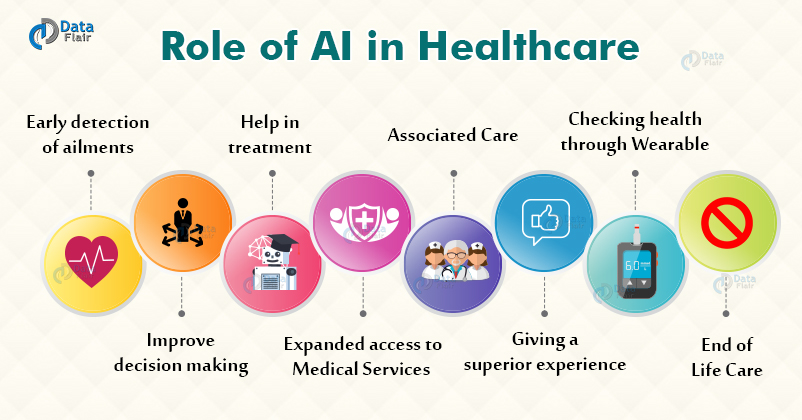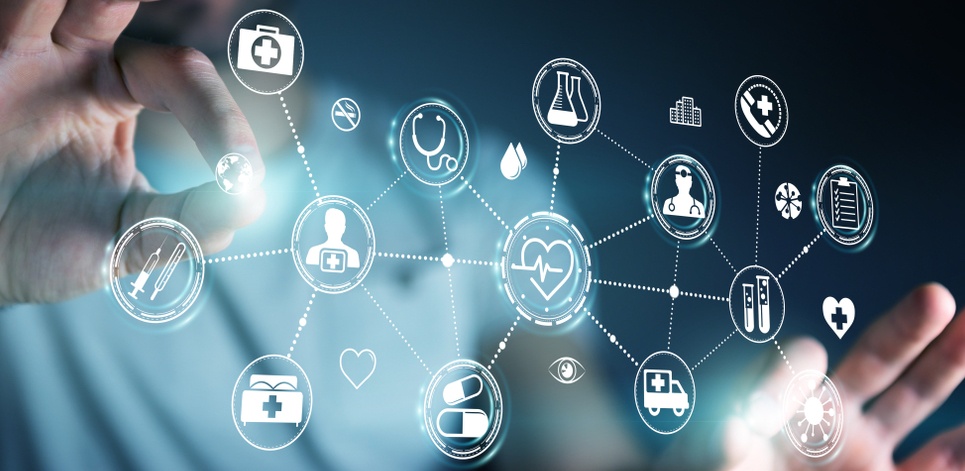The Role of Artificial Intelligence in Healthcare Management

In recent years, there has been a lot of talk about the role of artificial intelligence (AI) in healthcare. The potential of AI in healthcare is immense, and it has already started to revolutionize the industry. In this post, we will explore some of the recent research trends and top applications of AI in healthcare.
The Impact of Artificial Intelligence in Medicine on the Future Role of Healthcare Professionals

Artificial intelligence has the potential to transform the way healthcare professionals work. With AI, doctors can diagnose diseases more accurately and predict patient outcomes more effectively. This means that doctors can spend more time focusing on patient care, rather than data analysis.
AI can also help healthcare professionals to identify patients who are at risk of developing certain conditions, such as diabetes or heart disease. By analyzing patient data, AI can help doctors to develop personalized treatment plans that are tailored to the individual.
Role of AI in Healthcare – Recent-Research Trends

One of the latest trends in AI research is the use of machine learning to predict patient outcomes. Machine learning algorithms can analyze large amounts of patient data, such as medical records and lab results, to identify patterns and make predictions about future outcomes.
Another trend is the use of AI in medical imaging. AI algorithms can analyze medical images, such as X-rays and MRI scans, to detect abnormalities that may be difficult for human doctors to detect. This can lead to earlier and more accurate diagnoses, which can improve patient outcomes.
Top 8 Applications of Artificial Intelligence In Healthcare

There are many applications of AI in healthcare, but here are some of the top ones:
- Personalized Medicine – AI can help doctors to develop personalized treatment plans based on a patient’s unique genetic makeup, medical history, and lifestyle.
- Drug Discovery and Development – AI can help pharmaceutical companies to identify new drugs and speed up the drug development process.
- Medical Imaging Analysis – AI can analyze medical images to detect abnormalities and improve diagnostic accuracy.
- Virtual Nursing Assistants – AI-powered virtual assistants can provide patients with information and support, reducing the burden on clinical staff.
- Robot-Assisted Surgery – Robots can assist surgeons during complex procedures, improving surgical precision and reducing the risk of complications.
- Disease Diagnosis and Prediction – AI can analyze patient data to identify patterns and make predictions about future disease risk.
- Remote Patient Monitoring – AI can help doctors to monitor patients remotely, alerting them to potential health problems before they become serious.
- Healthcare Chatbots – Chatbots powered by AI can provide patients with instant access to healthcare information and advice.
Artificial Intelligence in Healthcare: the Future is Amazing

The future of healthcare is exciting, thanks in part to the potential of AI. We are already seeing the benefits of AI in healthcare, and as technology continues to advance, we can expect even more amazing developments in the years to come.
Role of Machine Learning and AI in Healthcare Sector

Machine learning and AI are already making significant contributions to the healthcare sector. Imaging analysis is just one example of how these technologies are improving patient care. AI can also help to reduce healthcare costs by improving efficiency and reducing the need for unnecessary tests and procedures.
One of the challenges with AI in healthcare is ensuring that patient data is protected. However, with proper safeguards in place, AI has the potential to improve healthcare outcomes and transform the industry.
Conclusion
Artificial intelligence is already transforming the healthcare industry, and there are many exciting developments on the horizon. From personalized medicine to remote patient monitoring, AI has the potential to improve patient outcomes, reduce costs, and transform the way healthcare professionals work.

Source image : www.signitysolutions.com

Source image : healthcareweekly.com

Source image : techvidvan.com

Source image : ksra.eu

Source image : www.tutorsindia.com







